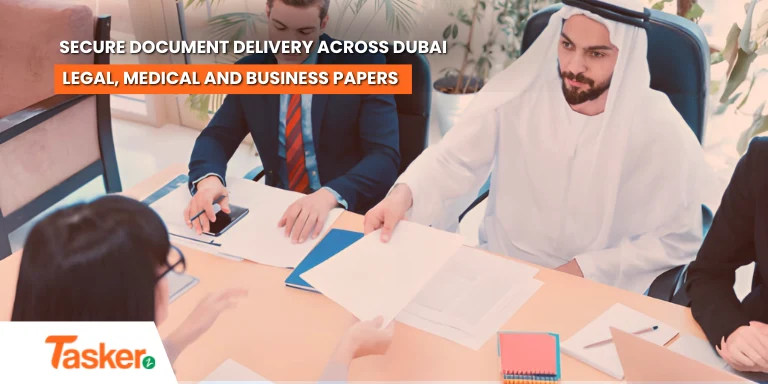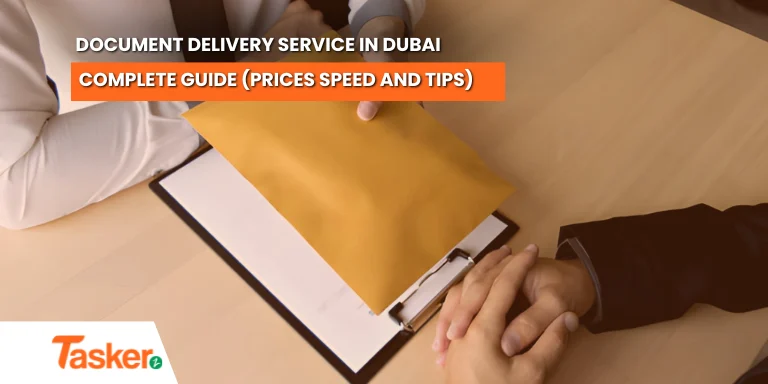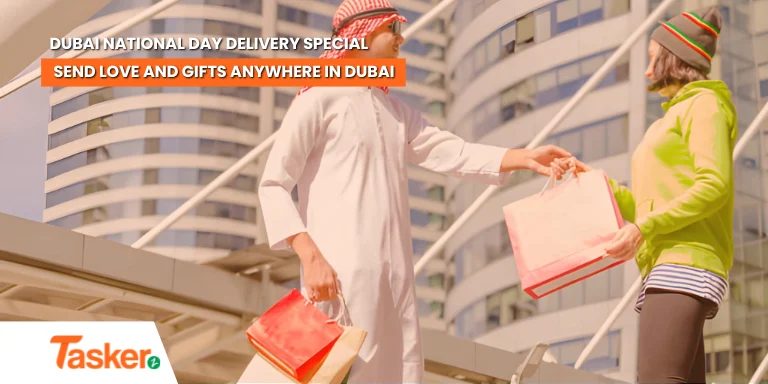So here’s what happened.
Some genius (let’s not name names) forgot their car registration paperwork at home on the very same day the RTA deadline came knocking. Obviously, the queue at the office wasn’t getting any shorter, the boss wasn’t getting any less impatient, and the weather? Unforgiving. There were only two choices: press pause on everything and go get the documents yourself, or send someone to collect them. Easy, right? Just send a friend or driver. Except, wait… guess who got turned away because they weren’t legally authorized to collect anything?
The system doesn’t care if the person “looked responsible.” There are rules. And those rules? They’re surprisingly rigid when it comes to someone collecting official documents on behalf of someone else. So, before handing over a copy of a passport and hoping for the best, take a breath and maybe read on.
Because yeah, authorizing someone to collect documents sounds harmless…until a small legal detail snowballs a much bigger headache.
The Big Deal Behind That Authorization Letter
Official documents aren’t pizzas. You can’t just call in a friend and say, “Pick it up for me, cheers.” Whether it’s Emirates ID, property papers, legal notices, visas, or anything remotely confidential, the authority handing them out needs proof that the person collecting them has the right to do so. And no, a “he’s my cousin, it’s fine” doesn’t cut it.
There’s a paper trail. There are signatures. There are stamps. And there’s a legal expectation that whoever walks in to collect those papers isn’t just winging it.
What Happens If Someone Shows Up Without Authorization?
Oh, nothing dramatic. Just wasted time, raised eyebrows, and a fat delay that nobody asked for. Add a few confused phone calls, a possibly panicked recipient, and one very annoyed receptionist trying to explain why “verbal permission” doesn’t count.
And yes, the documents stay right where they are.
Now if the collection was part of an urgent document delivery? Well, now you’ve got a double crisis: the person collecting can’t get them, and the person waiting might miss a deadline. Welcome to the chaos.
Required Documentation to Authorize Third-Party Collection
If someone’s collecting documents for someone else, there are three things that usually keep gatekeepers happy:
- An authorization letter (yes, printed, signed, and ideally not on a crumpled napkin)
- A copy of the ID/passport of the person giving permission
- The ID of the person collecting it
Bonus points if it’s all neatly stapled and the collector looks like they know what they’re doing. Zero points if the collector shows up asking, “Bro, you sure this is enough?”
Also, if the document involves any government entity, bank, legal office, or anything that uses the phrase “for security purposes” every 10 minutes, just assume the authorization needs to be airtight.
High-Security Documents That Don’t Tolerate Casual Pickups
There’s a solid list of documents that can’t just be picked up with a wink and a smile. Here’s what generally raises eyebrows unless proper procedures are followed:
- Emirates ID and residency cards
- Passports or any immigration paperwork
- Court letters or legal notices
- Property documents
- Bank letters, statements, or cheques
- Medical reports and test results
- Employment or visa-related papers
Basically, if it has your name, ID number, or anything that screams ‘confidential’ – expect the process to be formal.
It’s Always the Little Things That Turn Into Major Headaches
The mistake? Thinking the process is informal just because the document itself looks simple. That tiny bank letter? Still confidential. That “harmless” school certificate? Still protected. That one-page visa renewal receipt? Yeah, still a legal document.
And if it’s tied to deadlines or formalities, like RTA submissions, embassy visits, or immigration work – suddenly, document delivery services matter a lot more than they’re given credit for. Especially the ones that actually know how to navigate the legal quirks of authorization.
So How Do Professionals Handle It?
Here’s where Taskerz comes in swinging.
Document pickups, especially in a city like Dubai, aren’t just about moving paper from location to another. They’re about not triggering security flags while doing it. Which means:
- Preparing and carrying all necessary authorization proof
- Knowing which departments require originals vs. copies
- Showing up looking credible enough to not get flagged as suspicious
- Knowing how to talk to gatekeepers without starting unnecessary drama
Professional runners handle document delivery in Dubai with the kind of precision that saves clients from the typical “You can’t collect this” nightmare. They’ve been there, seen every possible refusal, and adjusted the process so the next person doesn’t have to deal with it.
What If It’s an Emergency?
Then welcome to the delightful mess called urgent document collection. The stakes are higher, the clock’s ticking, and mistakes are not an option. That’s when the need for proper legal handling becomes critical. Because one small slip, like forgetting the authorization letter, can turn a 15-minute pickup into a 3-day back-and-forth headache
And for those trying to manage it remotely or while stuck at work meetings? Skip the mental gymnastics and just hire someone who does this for a living. Urgent document delivery isn’t a favor someone does on their lunch break. It’s a service designed for people with better things to do than chase signatures and security protocols.
Time. Money. Reputation. All On the Line
Let’s break down what really ends up on the chopping block when things aren’t handled right:
- Time: wasted waiting, redoing, rescheduling
- Deadlines: missed submissions can spiral into fines, penalties, or worse
- Credibility: ever had to explain to your manager why a document didn’t get delivered because “the guy wasn’t allowed to take it”?
- Mental Bandwidth: because running around between offices over something that could’ve been outsourced is…avoidable
Steps to Ensure a Smooth Document Pickup
Honestly? Just treat document collection like a formal process. Because it is.
- Always send an authorization letter
- Include clear instructions
- Know the rules of the specific place you’re sending someone to
- Or better: book a service that already knows the drill
Because when handled by professionals, document delivery services become one less thing you have to worry about. You could roll the dice and hope your guy says the right thing at the counter… or you could let someone who knows the system handle it properly, with zero stress on your end.
Moral of the Story? Send the Right Person, or Don’t Send Anyone at All
Don’t risk having sensitive paperwork rejected just because the person collecting it didn’t have “the right piece of paper.” It’s not worth the time, energy, or frustration.
If a document matters enough to send someone to collect it, then it matters enough to do it properly. And if there’s any confusion or zero time to figure it all out – just pass the job to someone who’s done it a hundred times without messing up.
Taskerz is the difference between “we tried” and “it’s done.” We handle urgent document collection with full compliance, clear documentation, and total awareness of how the system works.
Next time something needs to be picked up on your behalf, and it’s too important to leave in the hands of someone who might get turned away – delegate it to someone who won’t be sent away because they didn’t have an authorization letter printed in duplicate. Outsource the stress. Trust the process. Let Taskerz handle the delivery.




